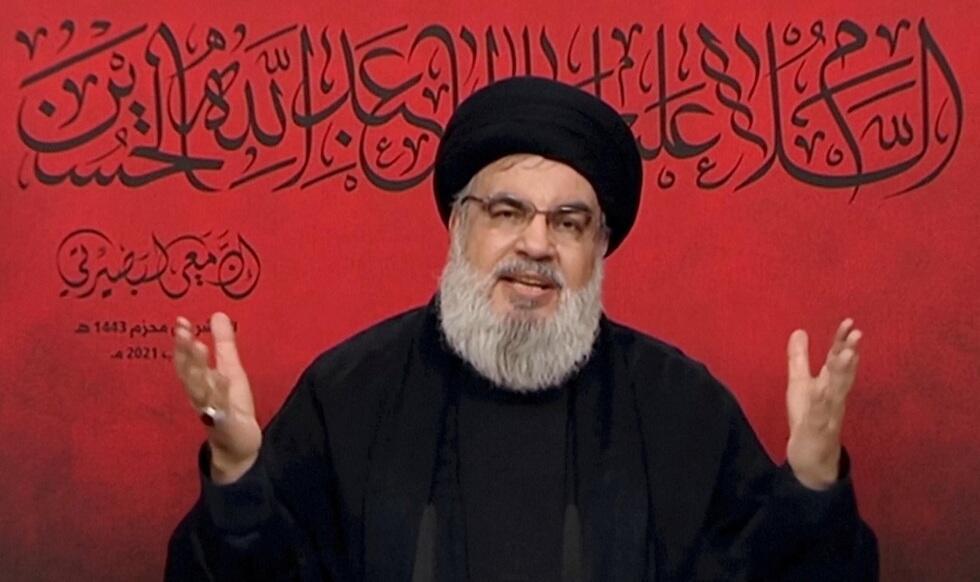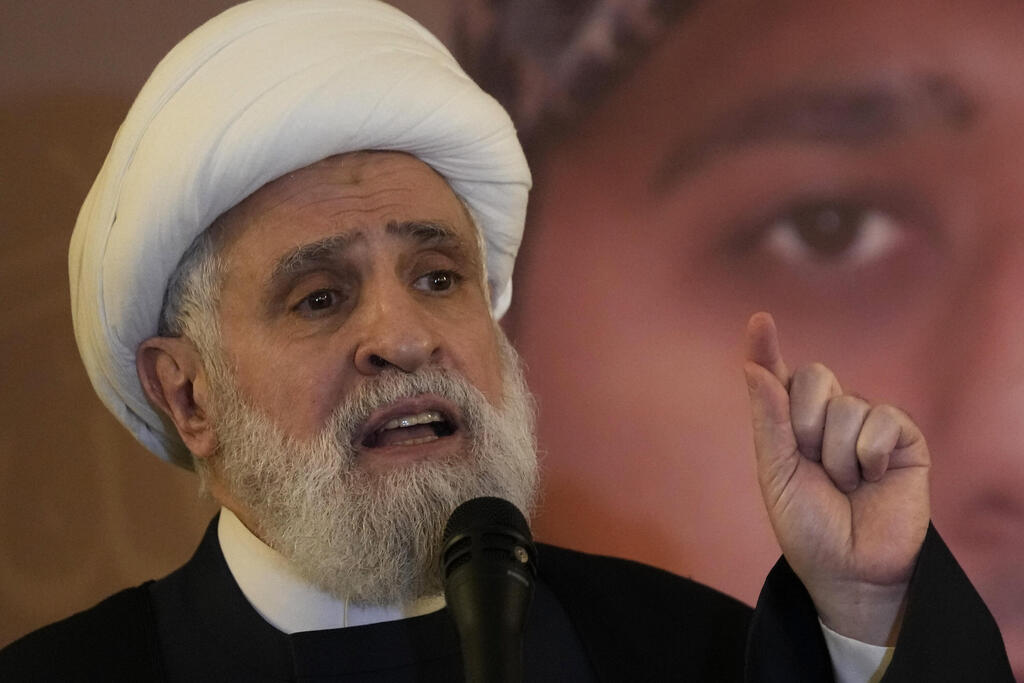The exchange of fire between the IDF and Hezbollah on both sides of the Lebanon border takes a higher toll on the Shiite terrorist organization. Since the beginning of the week, Hezbollah has reported 15 deaths, seven of whom were reported on Thursday alone.
Read more:
According to Hezbollah's official reports, 203 of its operatives have been killed since the onset of hostilities. However, Israeli estimates peg the death count among Hassan Nasrallah's fighters on the northern front much higher.
In addition to Hezbollah's significant losses in the fighting against Israel, villages and towns in southern Lebanon where the organization's operatives reside suffer numerous casualties and extensive damage. Consequently, many Lebanese frequently criticize the group for the toll their country pays.
Given that many Hezbollah operatives live in areas near the Israeli border, Nasrallah and other senior members of the organization constantly seek to praise and strengthen the "resilience" of southern Lebanese residents. Hezbollah attempts to justify the sacrifices made by southern Lebanese residents for the sake of the organization's efforts to "support Gaza" from populated areas in Lebanon.
On Thursday, during a memorial ceremony for Hezbollah casualties, Hassan Nasrallah's deputy Naim Qassem spoke and emphasized the three "principles" of the organization. "We will not give in to threats, we will not withdraw our support for Gaza, we will not discuss the future of Lebanon until the Gaza war stops," said Qassem.
Hezbollah's deputy secretary-general stated, "Discussions on this matter will only take place after the war, and any discussions taking place now are a waste of time," and continued to threaten, "War? Israel's lesson in 2006 will be just the beginning compared to future confrontations," he added, referring to a month-long war the terrorist group fought against Israel in the summer of 2006.
Hezbollah Secretary-General Hassan Nasrallah has dedicated large parts of his recent speeches to the organization's casualties, the wounded, and their families. In his latest speech on Tuesday, Nasrallah said, "those who bear the greatest burden are the residents of the southern border villages. The border villages resist through pain and sacrifice. They are the ones who have suffered the most from Israel's presence. The Lebanese front aims to weaken Israel until the attacks on Gaza cease."
The recent escalation in the northern region is occurring amid efforts to reach an agreement to stop the fighting. Western officials have been trying in recent weeks to prevent an escalation between Israel and Hezbollah, and it seems that the terrorist organization is required to restrain itself and absorb the losses.
Footage from IDF strike in southern Lebanon
(Video: IDF Spokesperson's Unit)
Lebanese newspaper Nida Al-Watan reported this week that the main goal of Iranian Foreign Minister Hossein Amir-Abdollahian's visit to Lebanon was to meet with Nasrallah and convey the message that Tehran concurs with the U.S. government about not expanding the war and turning it into a regional conflict, and that Hezbollah should continue "to take the Israeli attacks."
Hezbollah leaders have repeatedly threatened a harsh response to any harm caused to Lebanese civilians in southern Lebanon towns. It is still unclear whether the recent escalation and the number of casualties counted by Hezbollah will lead to a rise in the scope or intensity of attacks toward Israel.
After the rocket attack toward Safed, which killed IDF soldier Staff Sergeant Omer Sarah Benjo, the IDF increased the number of attacks in southern Lebanon. In Thursday's airstrike on the town of Nabatieh in southern Lebanon, Ali Muhammad al-Debs, a central commander in Hezbollah's elite Radwan force, his deputy Hassan Ibrahim Issa and another operative were killed.
As a result, Hezbollah responded with at least 35 rockets and two anti-tank missiles fired toward the northern city of Kiryat Shmona. There were no casualties. In response to the attacks, the Israeli Air Force targeted three Hezbollah military compounds in the villages of Qantara, Yarine and Taybeh in southern Lebanon, as well as additional infrastructure of the organization in the Labouneh area.
Footage from direct hit of Hezbollah rocket in Kiryat Shmona
Mickey Caspi, a Kiryat Shmona resident who returned to the city for errands on Thursday, criticized the government's handling of the situation and Defense Minister Yoav Gallant's belligerent statement toward Hezbollah.
"Mr. Gallant says that 'we've gone up one step out of ten against Hezbollah,' I don't understand what level he wants to achieve. How high can he get? I returned around 5:00 PM, and the first round of firing began. The second round was about half an hour later, followed by a power outage.
"The city is completely deserted, the streets are empty, and no one is here. Every evening, they are firing at the city. About eight minutes after the shooting, I went out to the balcony and heard metal falling on the road; it was shrapnel from the missiles. I advise people not to go out for at least 10 minutes after the shooting, despite the curiosity, because it's very unpleasant," he added.






